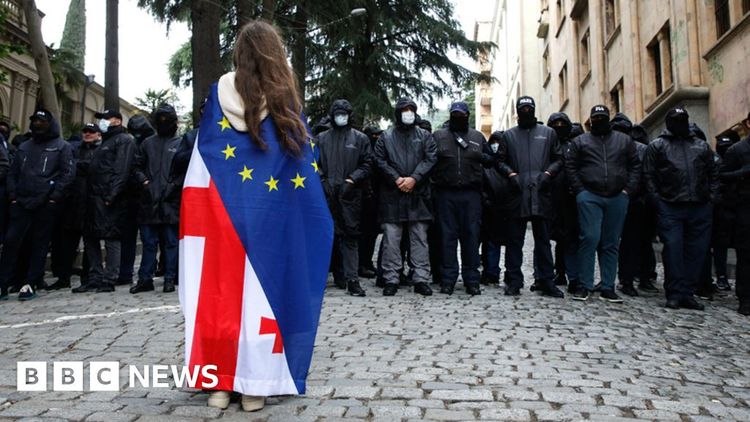Georgia approves controversial law that sparked mass protests

The Parliament of Georgia approved a controversial law called the "foreign agent" law, resulting in several weeks of widespread protests on the streets.
Nonetheless, Georgia’s president is expected to veto the bill, and parliament could arrange a second vote to surpass the veto.
Some individuals who analyze the bill, referred to as the "Russia law," are concerned that it may jeopardize personal freedoms.
A vast multitude of individuals had come together in close proximity to the legislative building in Tbilisi, Georgia, in order to express their discontent with the ruling.
The Prime Minister of Georgia, Irakli Kobakhidze, cautioned on Monday that if the bill is not passed in its third reading, the nation's sovereignty will be at stake, and it will end up experiencing a similar situation like Ukraine. Nonetheless, he did not clarify what he meant by this warning.
Demonstrators shouted at the police who were equipped with complete riot equipment while securing the flanks of the edifice. The situation was also strained within the legislative house, where supporters of the government and the opposition engaged in both verbal and physical confrontations.
When President Salome Zourabichvili entered the parliament building, she made it known to the BBC that she does not support Mr Kobakhidze and would reject the proposed law.
Nonetheless, Georgian Dream possesses a satisfactory amount of seats in the parliament to overpower her, and it is highly unlikely that the bill won't be approved.
The new law has been approved with a majority vote of 84 to 30 on Tuesday. According to this bill, non-governmental organisations and media platforms that get more than 20% of their financial support from foreign contributors are required to register as a "foreign power-related group".
The Justice Ministry will keep a close eye on them and if they don't disclose confidential data, they may be subjected to significant fees of up to 25,000 GEL ($9,400; £7,500).
The demonstrators fear that the law could be exploited by the authorities to stifle their rivals. Similarities have been highlighted to a despotic act that was implemented in Russia eight years ago, and which has since been utilized by the Kremlin to quash those who oppose them.
The political groups that are against the proposed legislation argue that it may negatively impact Georgia's bid to become a member of the European Union. This application has been accepted by the EU, but the organization has cautioned that the enactment of this bill may put any future advancements in that partnership in danger.
For almost a month now, the Caucasus nation has seen huge protests against the bill. Online pictures and videos from the past few days have shown fights breaking out between the demonstrators and law enforcement.



























































